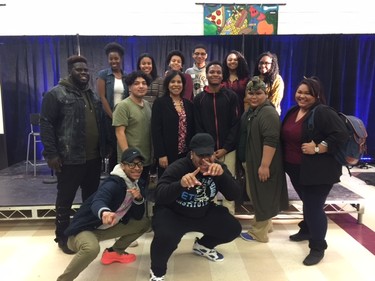Equity: It’s More Than Academics - March 5, 2017
How District 97 is incorporating the perspectives and needs of our students into our equity work.

With this goal in mind, our leadership team has taken a more in-depth look at how we approach and address student discipline at the school and district levels. We are particularly interested in the correlation between discipline and student progress because research has shown that children who spend a significant amount of time out of school for disciplinary reasons are less engaged in their learning and are more likely to drop out of school or become products of the juvenile or criminal justice systems.
What our data has shown is that we, like too many public school districts across the country, are moving in the wrong direction when it comes to taking disciplinary action against students who are most in need of positive structures and support. As a result, we have begun to explore how we can revise our policies and reform our practices to reverse this troubling trend.
One of the initial steps we took to help create a more equitable and nurturing environment for every child we serve was to co-host a community symposium with Oak Park and River Forest High School titled “Students: Claim Your Voice.”
The featured speaker for the event was Carlil Pittman from Voices of Youth in Chicago Education (VOYCE), which is “a youth organizing alliance for education and racial justice led by students of color from across the city of Chicago and Illinois.” Mr. Pittman provided personal testimonial about the importance of student activism. He also talked about the role this activism played in the passage of Senate Bill 100, which prioritizes the creation of safe and orderly schools while seeking to address the excessive use of the most severe forms of discipline.
Following Mr. Pittman’s remarks, the students, staff, and community members who attended the event were given the opportunity to participate in breakout sessions that included:
- Keep it 100– Provided training on VOYCE policy work and how it addresses school-to-prison pipeline.
- Healing Trauma Through Art– Used the River of Life art activity to self-reflect on major events that shape who we are in life.
- Restorative Justice– Used the privilege walk activity so that participants could reflect on the different issues they face and show the importance of understanding the root of those issues.
All of the feedback we received regarding the symposium was overwhelmingly positive, and included comments such as:
“It's an important conversation that should be had in many more communities.”
“I was inspired by the stories, which also caused me to reflect on my own actions and perceptions.”
School and district leaders will continue to engage in this important work and dialogue in their buildings. In fact, our two middle schools recently sent five of their teachers to a two-day Restorative Justice training session that was held on a weekend at Dominican University. Below are reflections from a couple of the participants.
"Thank you so much for the opportunity to begin the journey of learning to facilitate circles. Sitting in a circle for 14 hours this past weekend was a life changing experience. We entered this training as cordial colleagues or acquaintances, but left with stronger connection to each other. I am so hopeful that I will one day be able to facilitate this type of meaningful circle here with students, while also having the opportunity to participate in a circle with other staff. Making those connections creates a nurturing environment where learning opportunities and collaboration are much more meaningful."- Jen Olsen, Social Worker
"...Our instructor emphasized how important it was to build community between us, which led us to realize how critical it is to build that same type of community in our classes and school. While doing this, I not only learned how to facilitate the process, I was able to strengthen my relationships with my coworkers and get to know them on a much deeper level. During each break, we couldn't stop talking about ways we envision doing Peace Circles in our classes, our teams and our departments..."- Katy Alejos, ELA Teacher
In Dr. Amanda Lewis and John Diamond’s book “Despite the Best Intentions,” the authors encourage school communities to examine the policies and practices they have in place regarding school discipline—a critical activity we will undertake in the days ahead. We also encourage our parents/guardians to contact the PBIS coach from their child’s school to inquire about the steps the building is taking to implement restorative practices into its everyday activities.
Lastly, I would welcome any personal observations or recommendations regarding what has or can be done to help all of our students experience a caring adult-child relationship in our schools and community. Please share your thoughts with me via Let’s Talk.
